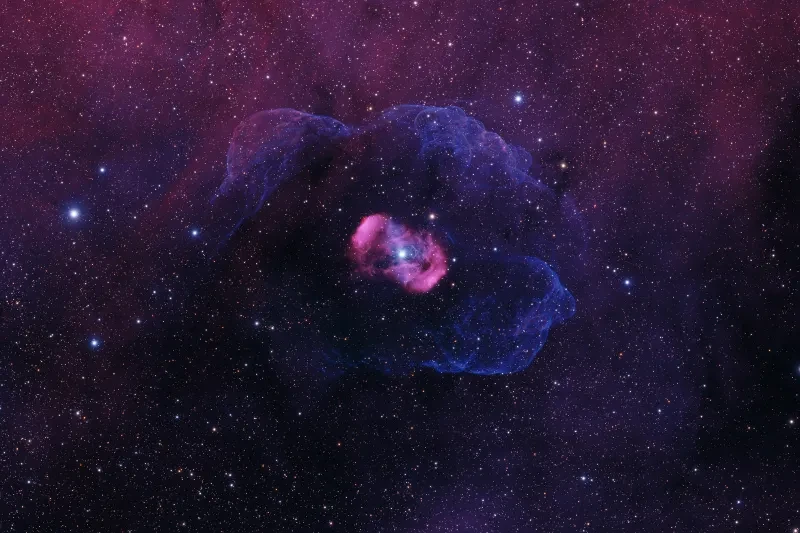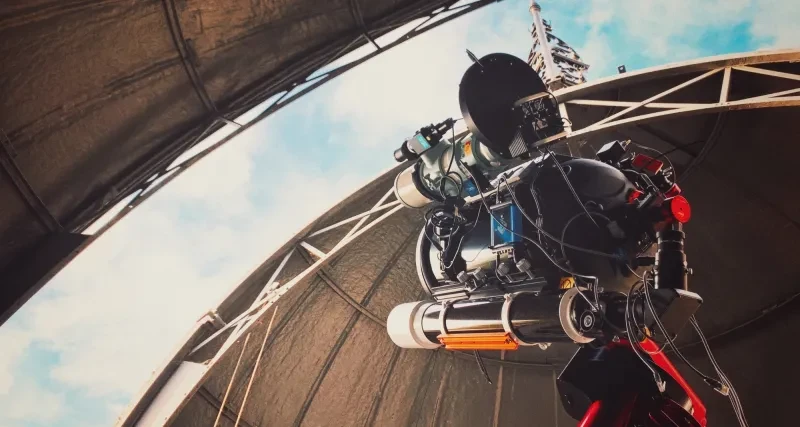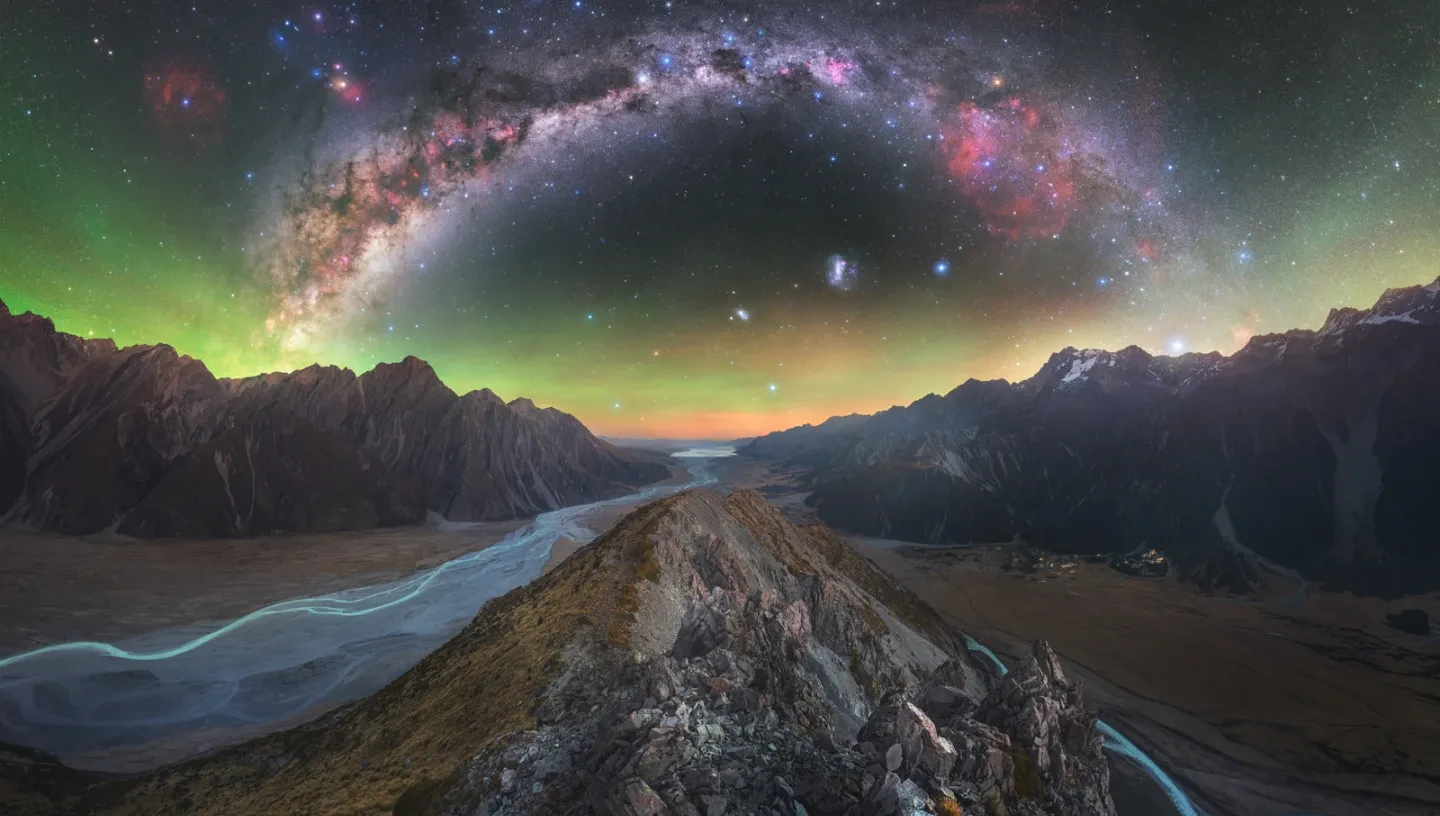
The winners of ZWO Astronomy Photographer of the Year 2025 have been revealed!
The full list of winning photographers were announced during an online awards ceremony on Thursday 11 September.
As well as who had scooped the top prize, winners in 11 different categories were named - from Our Sun to Aurorae and Skyscapes. Explore all the category winners below, and click through to see the full shortlist for each category.
The images are now on display in a dedicated exhibition space at the National Maritime Museum.
The overall winner and Galaxies category winner
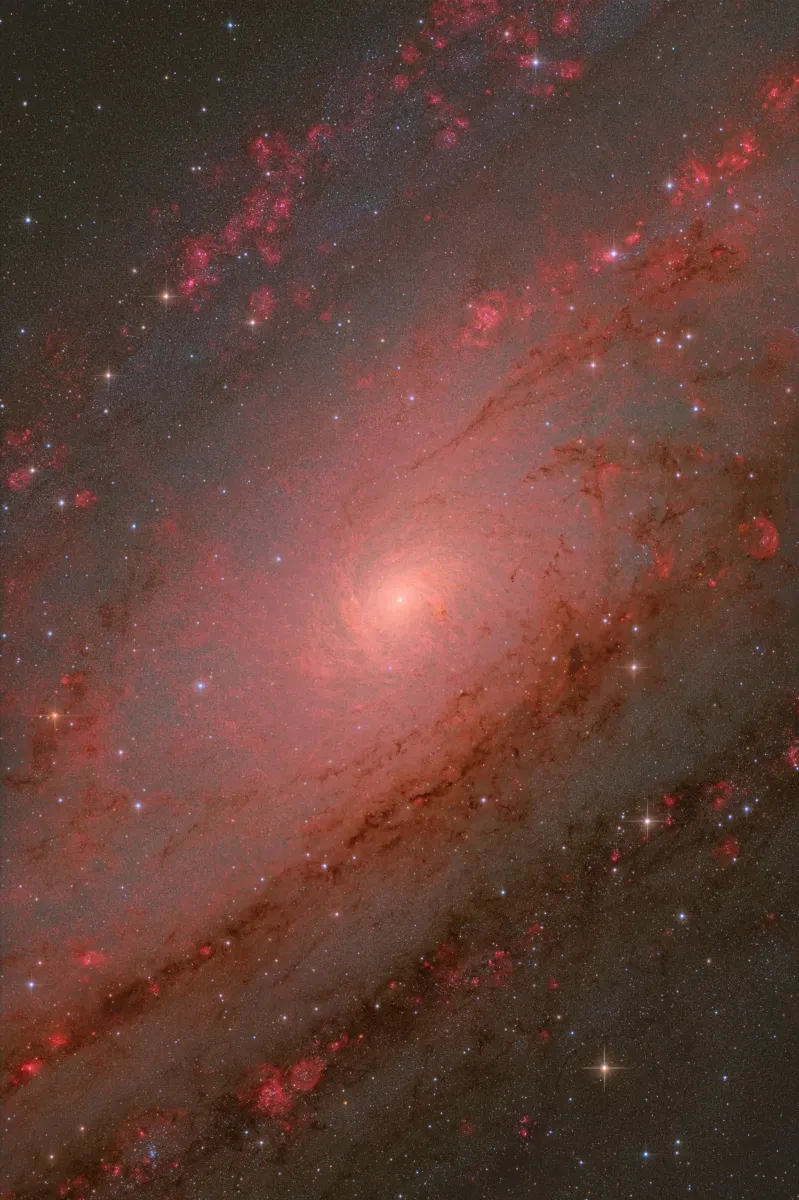
The Andromeda Core by Weitang Liang, Qi Yang, Chuhong Yu
"Not to show it all − this is one of the greatest virtues of this photo. The Andromeda Galaxy has been photographed in so many different ways and so many times with telescopes that it is hard to imagine a new photo would ever add to what we’ve already seen. But this does just that, an unusual dynamic composition with unprecedented detail that doesn’t obscure the overall scene.”
- László Francsics
Stay up to date
Subscribe to our monthly space newsletter for amazing space stories, astronomy guides and the latest news from ZWO Astronomy Photographer of the Year.
Skyscapes category winner
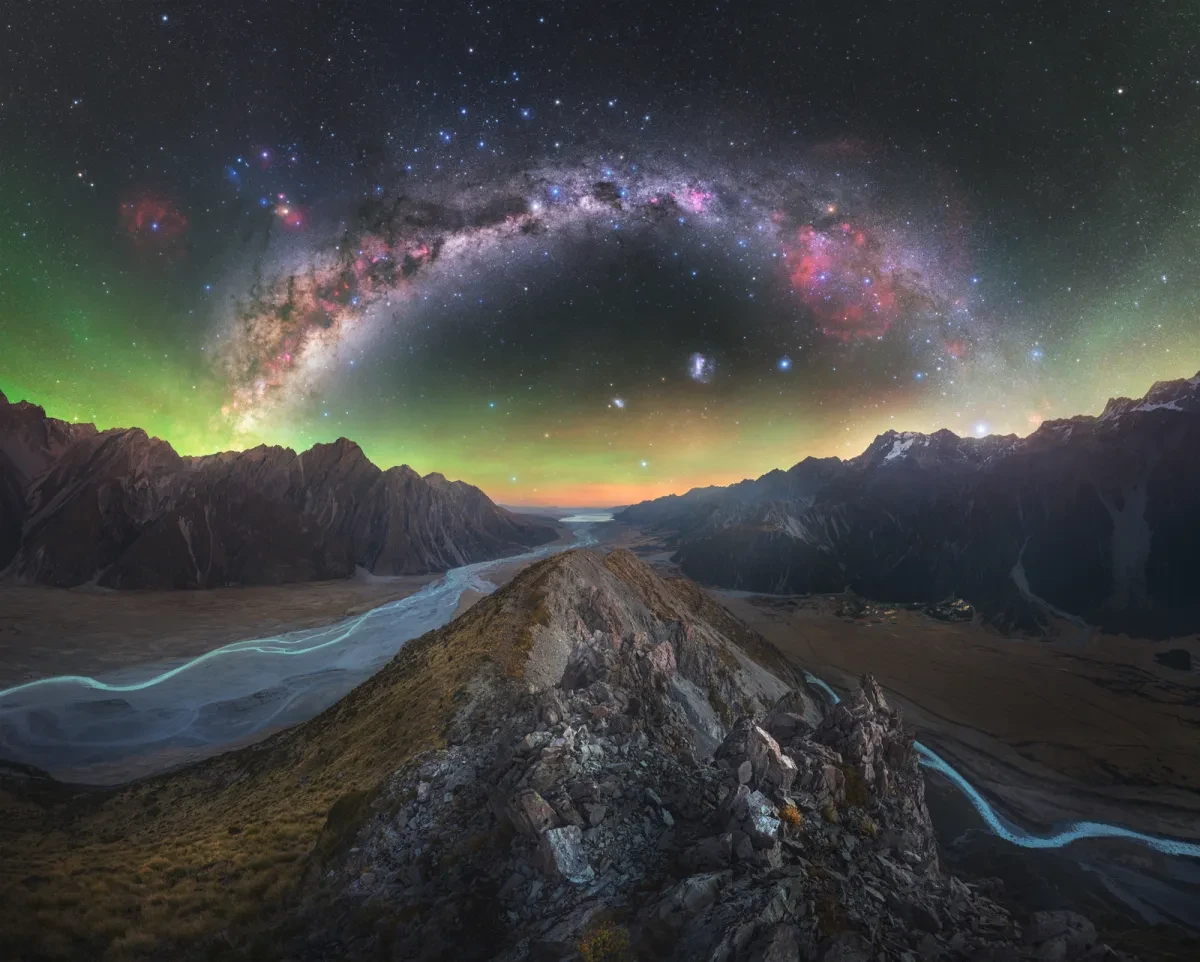
The Ridge by Tom Rae
“There is so much to love in this image. It is absolutely breathtaking. The vibrant colours of the landscape, the night sky and the individual stars are all remarkable. The photographer has captured impressive depth in the Milky Way, including the added hydrogen regions, without overdoing it. I appreciate how the airglow appears to cradle the sky, and the landscape contributes to a very balanced composition. Truly eye-catching and dreamy.”
- Kerry-Ann Lecky Hepburn, competition judge
Our Sun category winner
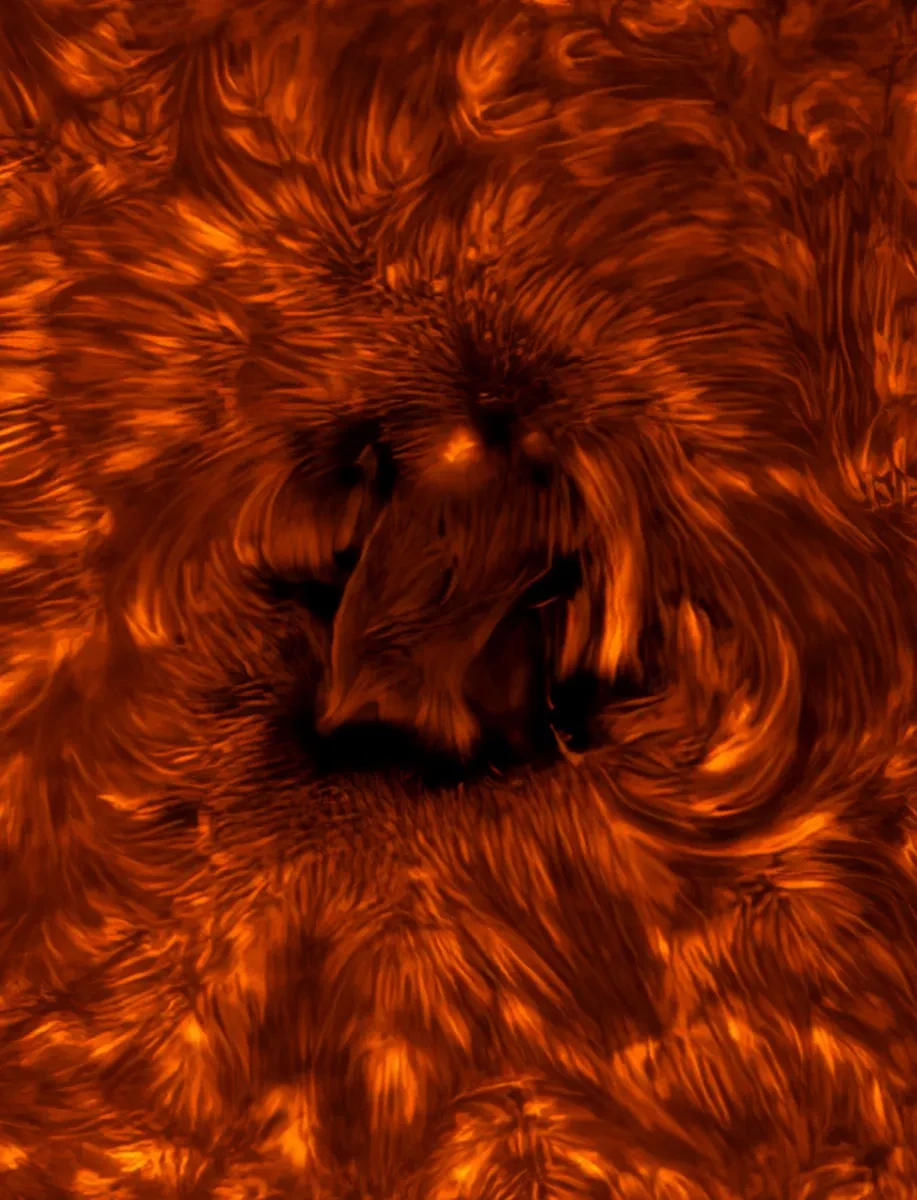
Active Region of the Sun's Chromosphere by James Sinclair
“I found this amazingly detailed view of one tiny portion of the Sun’s surface totally mesmerising. Its abstract beauty wonderfully conveys constant movement and it screams pure fusion energy!”
- Martin Lewis, competition judge
Our Moon category winner
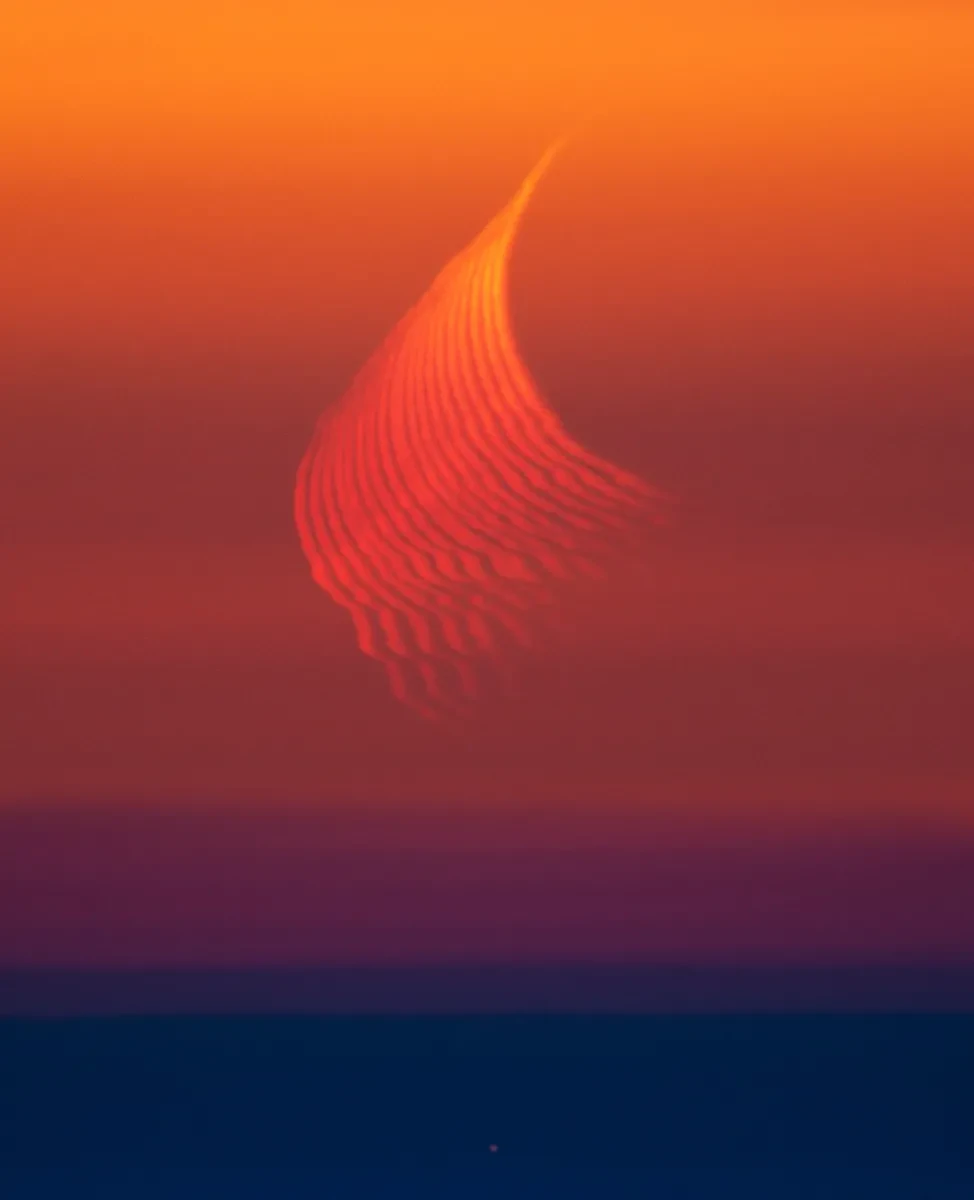
The Trace of Refraction by Marcella Giulia Pace
"We often see pictures of the Moon setting, the distortion of the atmosphere playing with its contours. But this image vividly shows just how much distortion is possible at the very edge of the horizon, stretching and wrinkling the lunar limb as if the ground is a black hole drawing the Moon towards it. A single sliver from it would be beautiful in its own right but when part of a well-crafted sequence it becomes a fascinating montage of a daily occurrence we never get to see in this way.”
- Steve Marsh, competition judge
Aurorae category winner
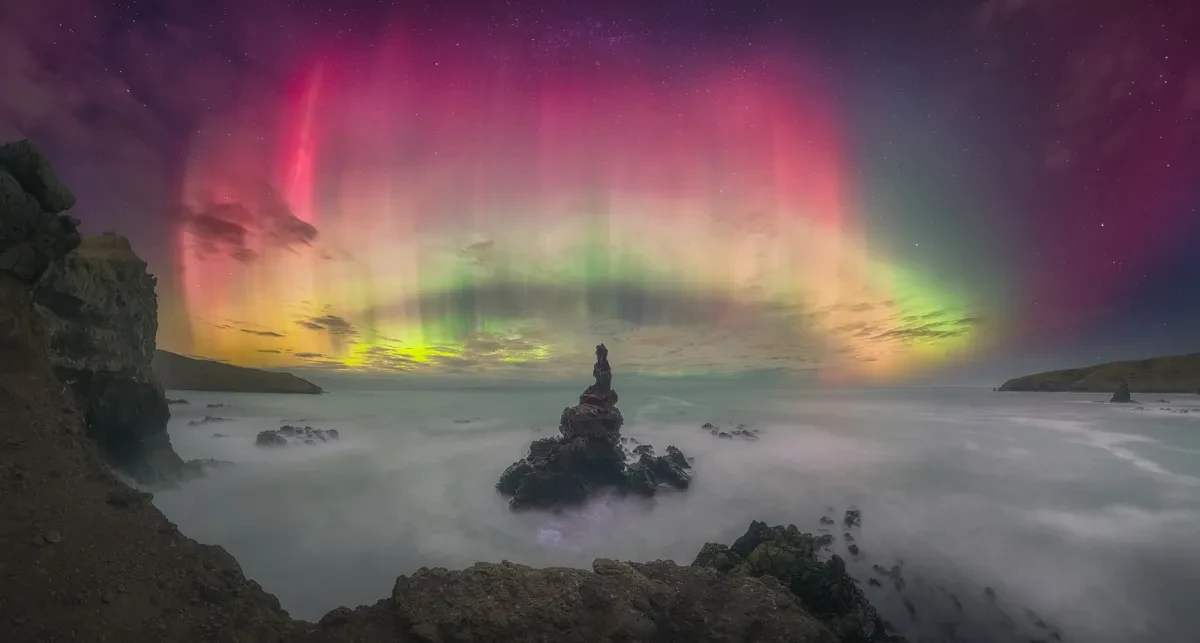
Crown of Light by Kavan Chay
“This breathtaking panoramic image, taken during an intense G5 storm, captures the vibrant Aurora Australis piercing through clouds above a rugged coastline. Its strength lies in the balance of technical precision and emotional resonance. The rocky coastline anchors the scene, contrasting with the ethereal glow of the aurora. The photographer’s expertise is clear in the seamless stitching of the panorama and refined processing of the sky. Taken after hours of effort, the image conveys both the aurora’s natural beauty and the photographer’s dedication. Congratulations to the photographer on a remarkable achievement.”
- Yuri Beletsky, competition judge
Planets, Comets and Asteroids category winner
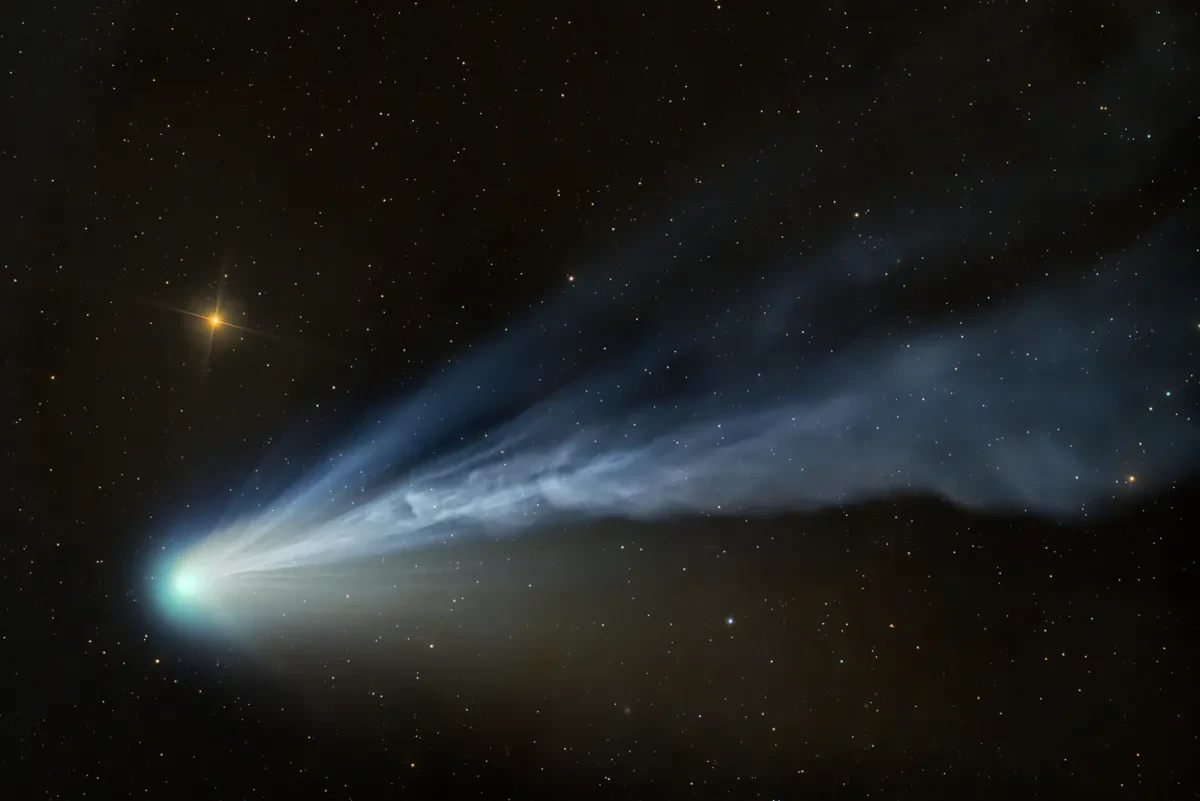
Comet 12P-Pons-Brooks Taking a Final Bow by Dan Bartlett
“This fine cometary image is dramatically composed and exceptionally crisp and detailed. Its blue tones contrast beautifully with the brilliant orange star nearby. The billowing tail evokes the sense of the comet roaring across the night sky – reminiscent of the fiery trail of the rocket ship in the 1936 film Flash Gordon.”
- Martin Lewis, competition judge
People and Space category winner
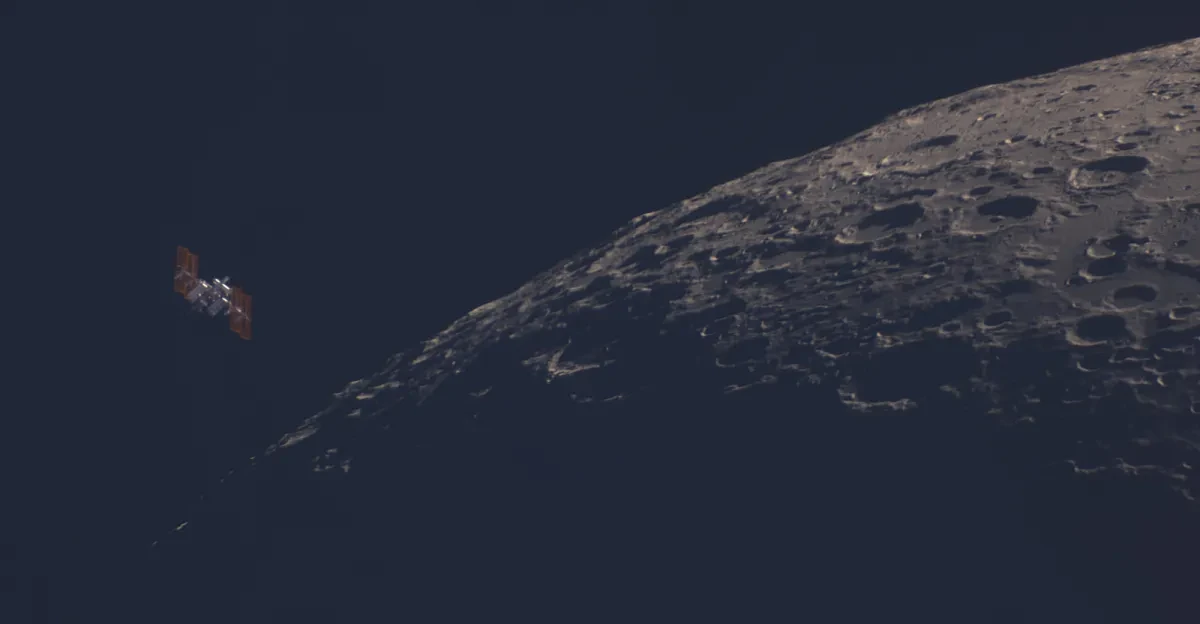
ISS Lunar Flyby by Tom Williams
“It is good to be reminded that people are on board the ISS as it traverses the Moon. Soviet cosmonaut Yuri Gagarin made the first space flight in 1961. I wonder if, today, we’ve become complacent about our presence in space. This image shows us that we are still space explorers and pioneers at the very beginning of our journey. A picture of great hope.”
- Alan Sparrow, competition judge
Stars and Nebulae category winner
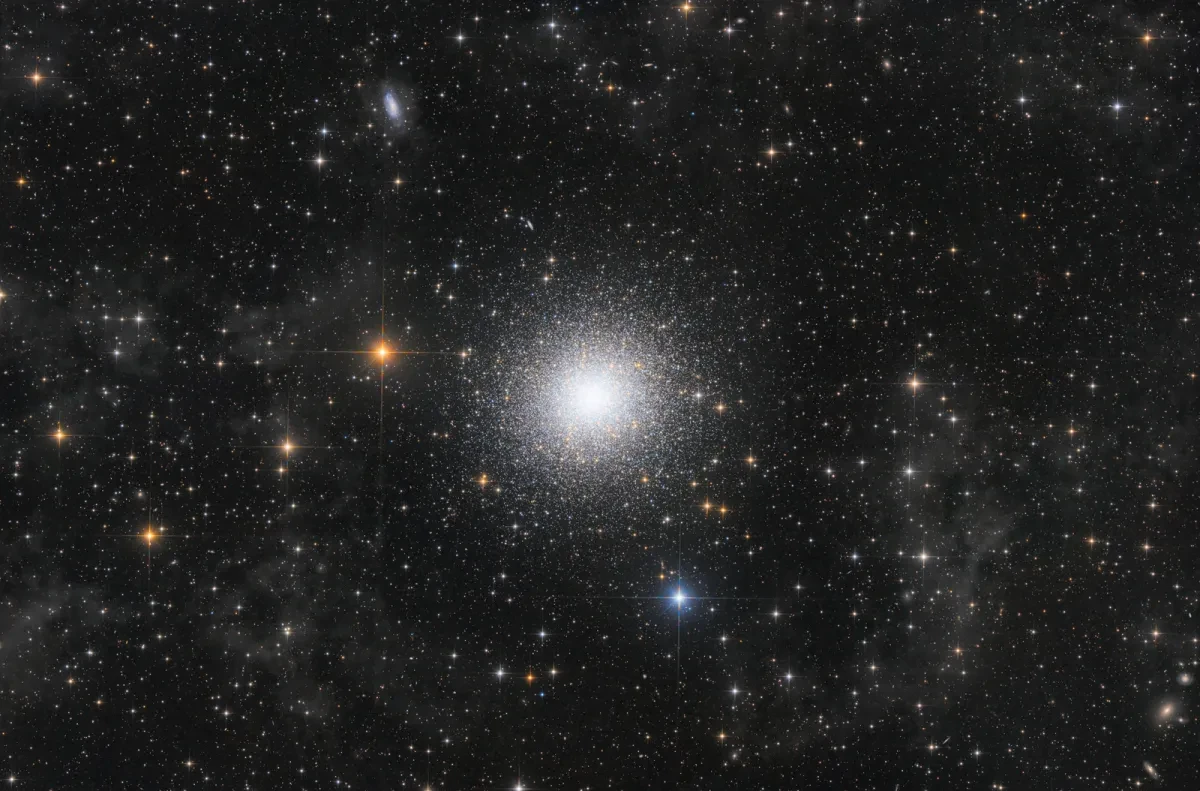
M13 – An Ultra-Deep Exposure of the Popular Cluster by Distant Luminosity group
“It’s the incredible balance of detail at different distances that makes this a truly impressive image. Subtle grey clouds of interstellar dust and a field of local stars make up the foreground. In the middle distance is the Great Hercules Cluster itself, beautifully captured right to its luminescent core. But it’s the background that makes this image complete. Dozens of galaxies pepper the scene. More are revealed the longer you look to the point that it begins to do the Hubble Deep Field proud. With razor sharp focus and beautiful bursts of colour, this is a worthy winner of the category. ”
- Greg Brown, competition judge
The Sir Patrick Moore Prize for Best Newcomer
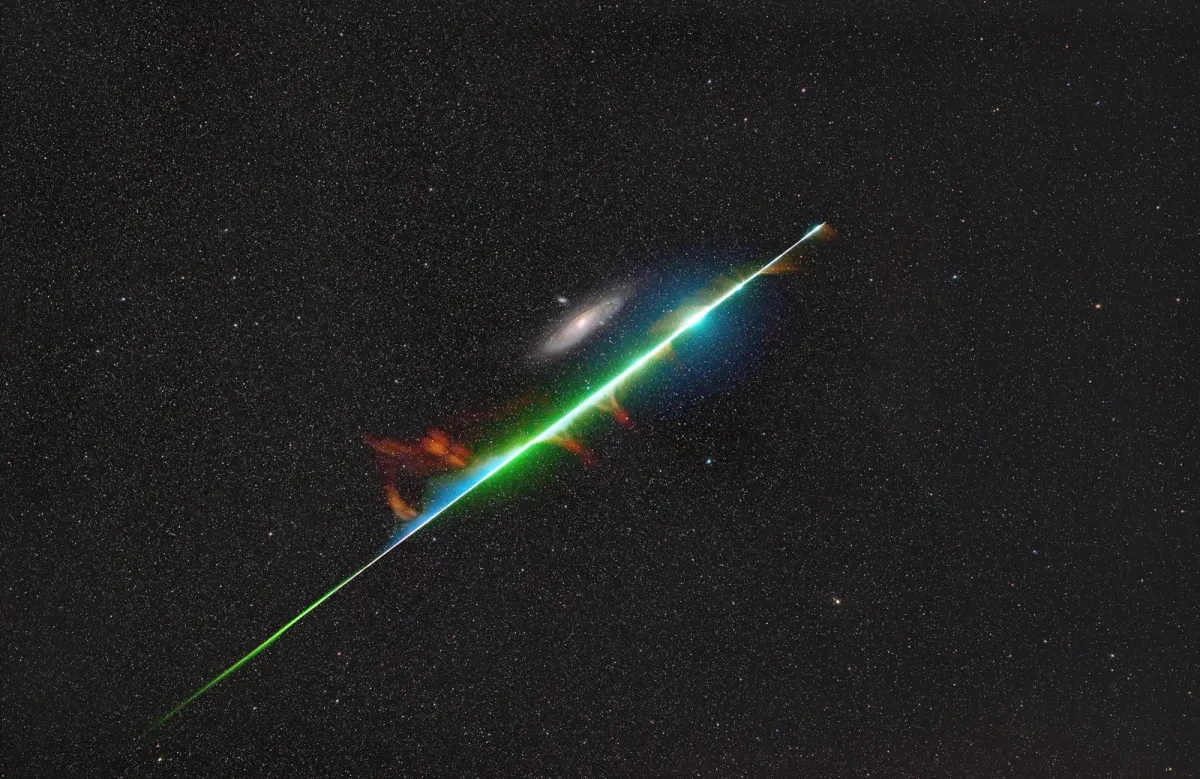
Encounter Across Light Years by Yurui Gong, Xizhen Ruan
“Happenstance created this alluring comparison. Our view of Andromeda is fixed (at least over the course of a human lifetime), whereas rocky material burning up in our atmosphere flares up as a fireball for just a few seconds. Though the distant galaxy is home to phenomenally energetic processes, the transitory streak across the sky seems even more powerful. For just a moment, the annihilation of an object no bigger than a football steals the attention from the home of over a trillion stars.”
- Ed Bloomer, competition judge
The Annie Maunder Open Category
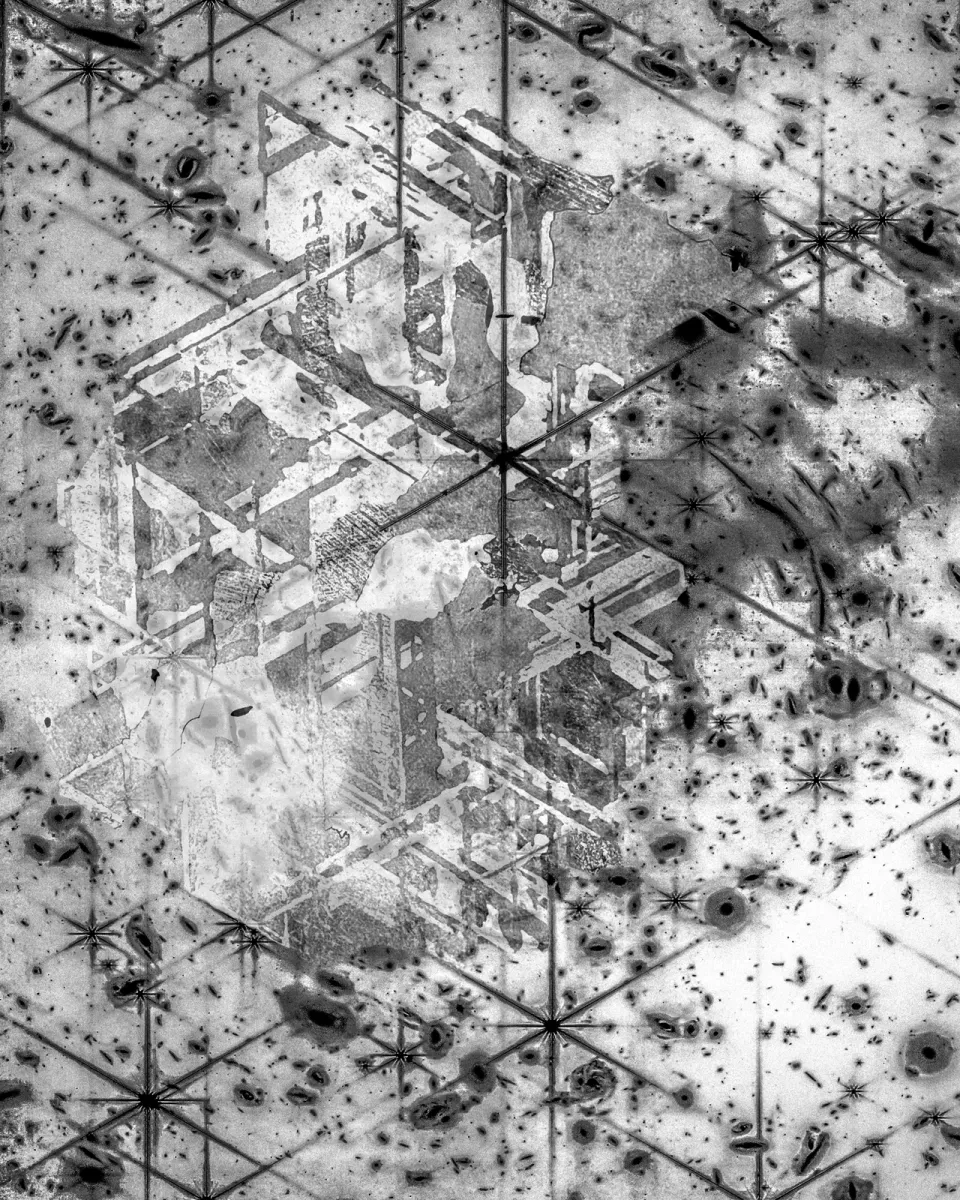
Fourth Dimension by Leonardo Di Maggio
“This image unites two phenomena that are typically hidden from view: the gravitational lensing captured by the James Webb Space Telescope, which magnifies distant galaxies, and the intricate internal structure of a meteorite. Together, they form a striking composite that bridges the vastness of the cosmos with the minuteness of the microscopic.”
- Victoria Lane, competition judge
ZWO Young Competition
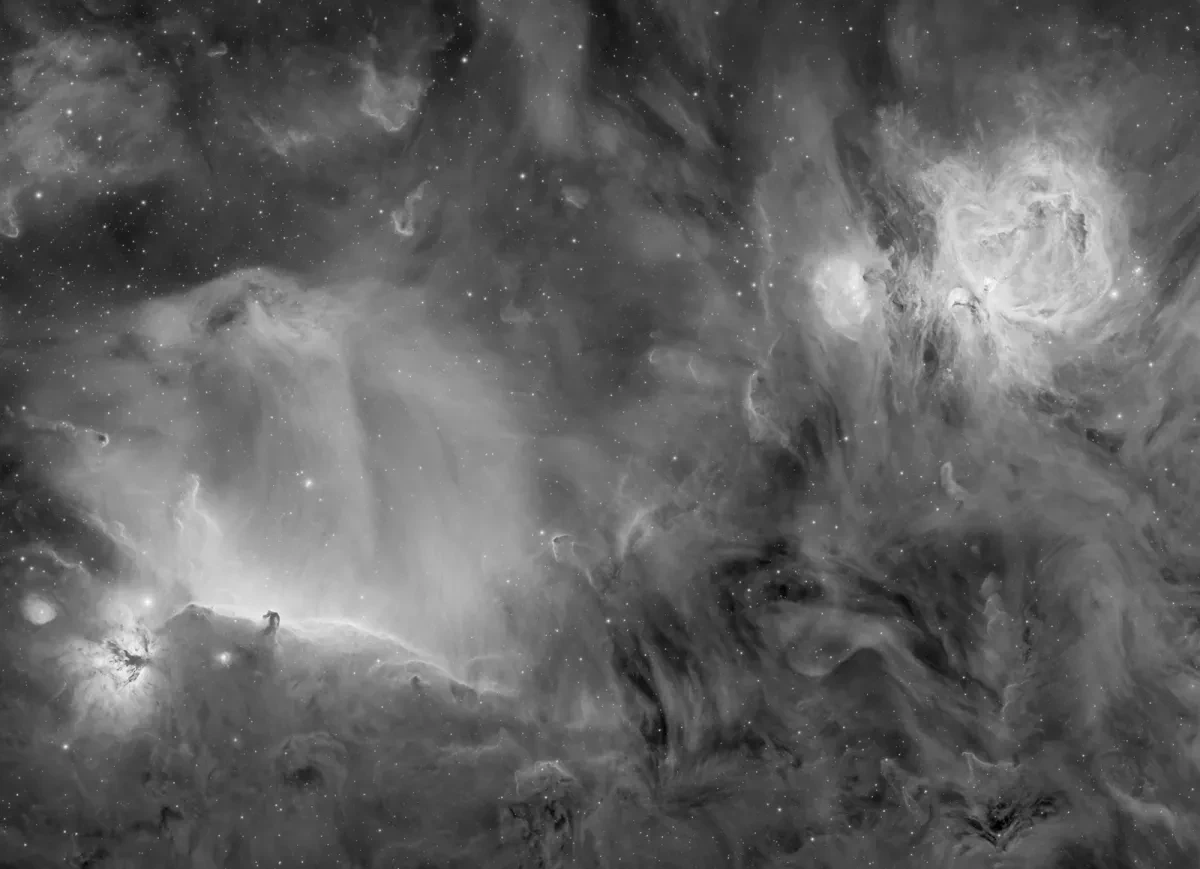
Orion, the Horsehead and the Flame in H-alpha by Daniele Borsari
“It never ceases to amaze me how the quality of images in the Young category can rival those in the overall competition – and few demonstrate that more clearly than this one. Choosing black and white over bright colours and focusing purely on the shapes and contours of the nebulae is a bold decision that has paid off. The Orion, Horsehead and Flame nebulae have rarely looked so dynamic and it’s easy to imagine these vast gas clouds roiling and billowing through space.”
- Greg Brown, competition judge

About ZWO Astronomy Photographer of the Year
From amazing aurorae to glittering galaxies, discover the world’s greatest space photography at the ZWO Astronomy Photographer of the Year exhibition at the National Maritime Museum.
Now in its 17th year, ZWO Astronomy Photographer of the Year showcases the very best space photography from a global community of photographers.
The new exhibition will open to the public on 12 September, showcasing over 100 photographs on brilliant lightbox displays.
Each image has been selected by a panel of international experts and showcases some of the best space photography in the world.

